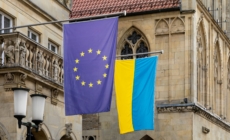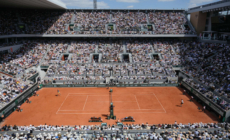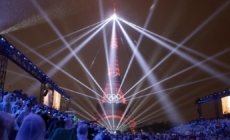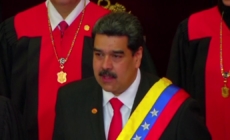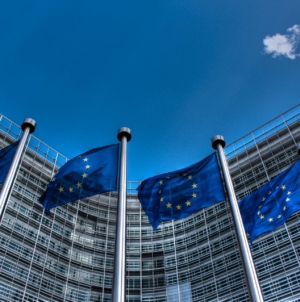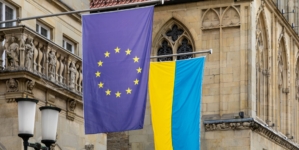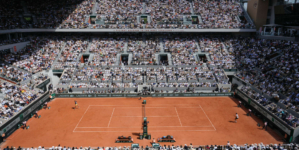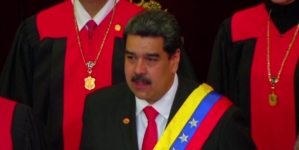-
Szijjarto: EU’s weak interest representation ‘historic sin of Brussels bureaucrats’ - 30 mins ago
-
Mets’ Kodai Senga Exits First Start of Season With Injury - 34 mins ago
-
Fresno County man sentenced for sexually assaulting children, dog - 42 mins ago
-
Austin FC's Gyasi Zardes finds the back of the net in 45' to take a 2-0 lead over Pumas - 47 mins ago
-
Gulyas: Ukraine ‘blackmailing’ countries in favour of peace talks - about 1 hour ago
-
How to Watch Men’s Tennis at the 2024 Paris Olympics: Streams, Schedule - about 1 hour ago
-
Photos: Paris is the backdrop for a colorful Olympics opening ceremony - about 1 hour ago
-
Jordan Love, Packers reportedly agree to 4-year, $220 million extension - about 1 hour ago
-
A pivotal election looms over Venezuela as fear for free and fair polls grows - 2 hours ago
-
NASCAR News: This Is Where Corey LaJoie Could Go After Spire Motorsports Exit - 2 hours ago
Russians freeze as Putin’s war and burst pipes reveal cracks at home
Numerous videos shared online in late December and January showed boiling hot water and rolls of steam escaping burst pipes inside people’s homes and apartment buildings. People also shared photos of low thermometer readings inside their homes and even frost build-up on their windows amid heating outages caused by the accidents. Several videos also showed burst mains outside in freezing temperatures, with water sprouting onto the streets, forming thick steam clouds.
Residents of the Moscow region town of Khimki, where there was a main pipeline accident in early January, held up “SOS” banners as they complained about a lack of heat in bitter cold, asking Putin and the regional governor to intervene in a video. “We are freezing,” a woman says in the video.
And in the Moscow region town of Podolsk, 170 apartment buildings were left without heat in minus -6 degree weather in early January after a break on the heating main, Tass reported. Putin reportedly did get involved in this case, ordering the nationalization of the utility plant whose boilers caused havoc there, according to the region’s governor, Andrei Vorobyev.
Several incidents, including the ones in Podolsk and one in Nizhny Novgorod that led to 12 people being burned from a burst pipe, saw criminal proceedings opened.
A bitterly cold December and January is not a novelty in most of Russia, although the Kremlin still tried to blame the crisis on what spokesman Dmitry Peskov called “abnormal frosts” when asked about it last month.
But Peskov admitted that “despite all the titanic efforts to update all housing and communal services systems, a certain part of them remains in a rather dilapidated state,” and it was impossible to update everything in 10 or even 15 years.
According to Russia’s construction and communal services ministry, there are plans to invest at least 4.5 trillion rubles (more than $49 billion) in modernizing utility infrastructure up to 2030, but the reality on the ground means the number of accidents continues to grow. During a 2022 meeting, it was reported that 31% of heating supply networks, more than 45% of sewage networks and over 43% of water supply networks across Russia needed to be replaced, according to the Kremlin.
At the peak of the crisis, Putin himself said that it was important not to neglect problems with the communal services and to be proactive.
Still, the Kremlin would have preferred to avoid any hints of internal dissent less than two months before the election, especially when it could raise questions about government-spending priorities amid the colossal costs of Putin’s war in Ukraine.
“Cities are freezing. Who is to blame?” Boris Nadezhdin, who emerged as a prominent anti-war figure but was barred Thursday from running in the presidential election, said of the crisis last month. “The huge amount of money spent and reserved for the special military operation could have been invested in improving the quality of life of my fellow citizens,” he said in a post on the Telegram messaging app.
Putin’s economy has largely weathered Western sanctions imposed because of the war, but it’s now more military-oriented than ever. More than 10.7 trillion rubles ($118 billion) was allocated to “national defense” this year, according to a report by the Russian finance ministry.
The same report shows that funding for housing and communal services was 881 billion rubles ($9.7 billion) this year, up from 593 billion ($6.5 billion) in 2021, but the budgeted allocation is supposed to go down to 381 billion ($4.2 billion) in 2026.
Lipsits said the reality is that fixing the existing utility networks would take tens of billions of dollars, money that is not there because it’s going to the war in Ukraine.
“It’s a slightly apocalyptic picture, but it reflects that Russia is a complicated country,” Lipsits said of the Soviet-era infrastructure. “A lot of money needed to be invested in it for peaceful purposes — to fix it up and make it suitable for life in the 21st century,” he added. “But instead of this, the money went to the war.”
Source link




